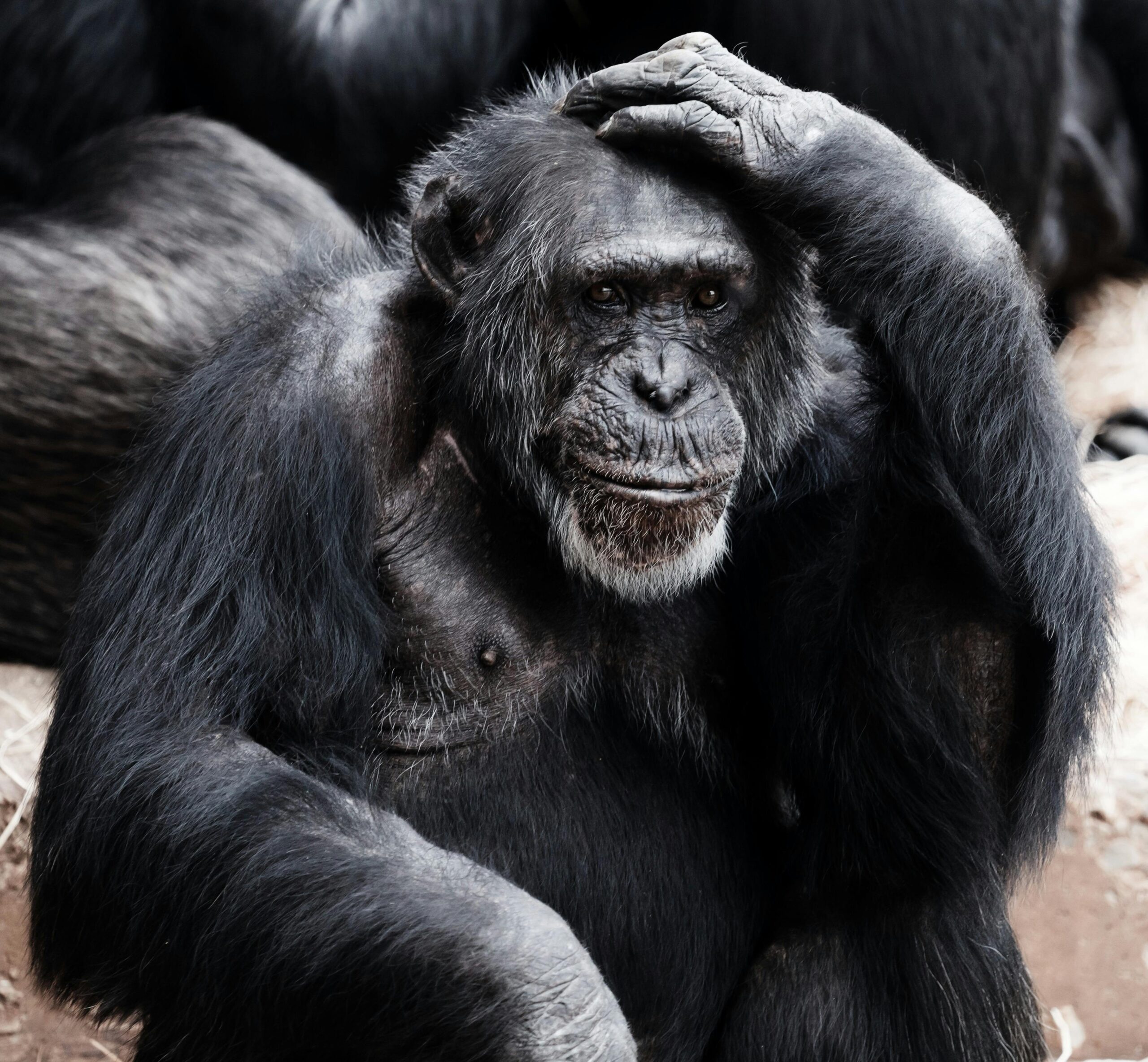The universe whispers secrets through the intricate dance of evolution, weaving consciousness and intelligence into the fabric of existence itself. 🌌
For millennia, humanity has gazed upward, questioning our place among the stars and pondering whether intelligence is merely an earthly phenomenon or a cosmic inevitability. The exploration of cosmic intelligence isn’t just about finding extraterrestrial life—it’s about understanding how consciousness emerges from the raw materials of the universe and whether evolution follows universal patterns that transcend planetary boundaries.
Our journey through the mysteries of cosmic intelligence reveals profound connections between biological evolution, the emergence of consciousness, and the fundamental laws governing our universe. This exploration challenges our assumptions about what intelligence means, how it develops, and where it might exist beyond our pale blue dot.
The Cosmic Canvas: Where Intelligence Begins 🎨
The story of cosmic intelligence begins not with living organisms, but with the fundamental properties of matter and energy established during the Big Bang. The universe itself seems remarkably fine-tuned for the emergence of complexity—a phenomenon that continues to astound physicists and philosophers alike.
Carbon, the backbone of life as we know it, forms within the nuclear furnaces of stars. When these stellar giants explode as supernovae, they scatter these life-essential elements across the cosmos. This process of stellar nucleosynthesis represents the first chapter in intelligence’s origin story—the universe literally building the components necessary for conscious thought.
What makes this particularly fascinating is the apparent directionality toward increasing complexity. From simple hydrogen and helium, the universe has evolved systems of staggering intricacy: galaxies, planetary systems, organic molecules, and eventually, thinking beings capable of contemplating their own existence.
The Goldilocks Principle in Universal Evolution
Scientists have identified numerous “just right” conditions necessary for complex structures to emerge. The strength of gravitational forces, the mass of electrons, the speed of light—if any of these fundamental constants varied even slightly, the universe might have remained a featureless void or collapsed immediately after its birth.
This fine-tuning raises profound questions: Is our universe one of many, each with different physical laws? Did consciousness emerge because the universe’s properties made it inevitable? These questions sit at the intersection of cosmology, biology, and philosophy, challenging us to think beyond traditional disciplinary boundaries.
Evolution’s Algorithm: The Universal Code of Complexity
Charles Darwin revolutionized biology by identifying natural selection as evolution’s mechanism, but the implications of evolutionary principles extend far beyond earthly biology. Evolution, at its core, is an algorithm—a process of variation, selection, and replication that can operate on any substrate capable of carrying information.
This algorithmic nature suggests that evolution might be a universal phenomenon, not confined to DNA-based life. Wherever information systems exist that can copy themselves with occasional variations, and wherever environmental pressures create differential survival, evolution should occur.
Consider these diverse evolutionary systems:
- Molecular Evolution: Even before life, chemical systems competed for resources and energy, with more stable configurations persisting longer
- Cognitive Evolution: Ideas and memes evolve through cultural transmission, competing for mental real estate in human minds
- Technological Evolution: Human innovations build upon previous designs, with market forces selecting successful technologies
- Cosmic Evolution: Galaxies, stars, and planetary systems follow evolutionary pathways determined by physical laws
Intelligence as Evolution’s Attractor State
One of the most compelling questions in evolutionary biology is whether intelligence represents a convergent solution—a destination that evolution tends to reach repeatedly through different pathways. On Earth, we observe intelligence evolving independently in multiple lineages: primates, cetaceans, cephalopods, and corvids all display remarkable cognitive abilities despite their evolutionary distance from one another.
This convergence suggests that intelligence provides such significant adaptive advantages that evolution discovers it repeatedly. If this pattern holds universally, then wherever complex life exists, intelligence should eventually emerge as a solution to survival challenges.
Consciousness: The Hard Problem in Cosmic Context 🧠
The emergence of consciousness represents perhaps the most perplexing phenomenon in the universe. How does subjective experience arise from objective physical processes? This “hard problem of consciousness” becomes even more intriguing when considered on cosmic scales.
Neuroscience has mapped extensive correlations between brain activity and conscious experience, yet the explanatory gap remains. Why does information processing in neural networks produce the qualitative sensation of experiencing red, tasting coffee, or feeling joy? Understanding this question becomes crucial when searching for cosmic intelligence—we need to know what we’re looking for.
Some theories propose that consciousness might be more fundamental than previously assumed. Integrated Information Theory suggests that consciousness arises from any system that integrates information in particular ways. Panpsychism posits that consciousness might be an intrinsic property of matter itself, present in rudimentary forms even at fundamental levels.
The Spectrum of Awareness
Rather than treating consciousness as binary—present or absent—modern neuroscience recognizes a spectrum of awareness. Single-celled organisms respond to their environment through biochemical processes. Insects display surprisingly complex behaviors. Mammals demonstrate self-awareness and emotional depth. Humans possess metacognition—the ability to think about thinking.
This spectrum view has profound implications for cosmic intelligence. We shouldn’t expect extraterrestrial consciousness to mirror human experience. Intelligence might manifest in forms we struggle to recognize, operating on timescales or substrates entirely alien to our biology.
The Fermi Paradox: Where Is Everybody? 👽
The apparent contradiction between the high probability of extraterrestrial civilizations and the absence of evidence for them constitutes the Fermi Paradox. If the universe is so vast and ancient, and if evolution tends toward intelligence, why haven’t we detected any signs of cosmic companions?
Numerous solutions have been proposed, each revealing different assumptions about intelligence’s nature and trajectory:
- The Great Filter: Perhaps some evolutionary barrier prevents most life from reaching technological sophistication—either behind us or ahead
- The Zoo Hypothesis: Advanced civilizations might deliberately avoid contact, observing us like wildlife researchers maintaining distance
- The Transcension Hypothesis: Sufficiently advanced intelligence might migrate into realms we cannot observe—virtual realities, higher dimensions, or microscopic scales
- The Dark Forest Theory: Revealing one’s existence might be dangerous in a universe where resources are finite and motivations unknown
Recognition and Communication Barriers
We may have already encountered signs of cosmic intelligence without recognizing them. Our search strategies assume others use electromagnetic radiation for communication and have technological signatures similar to ours. But intelligence might communicate through gravitational waves, neutrino streams, or methods we haven’t conceived.
Furthermore, the communication challenge extends beyond technology. Even on Earth, humans struggle to communicate with dolphins or octopuses—species with which we share millions of years of evolutionary history. Bridging the conceptual gap with minds evolved under entirely different selection pressures presents challenges we’re only beginning to appreciate.
Technological Intelligence: Beyond Biology 🤖
Humanity stands at the threshold of creating artificial intelligence that may eventually surpass biological cognition. This development adds another layer to our understanding of cosmic intelligence—perhaps biological evolution serves primarily as a bootstrapping mechanism for technological intelligence.
Machine learning systems already exceed human capabilities in narrow domains: playing chess, diagnosing diseases, recognizing patterns in vast datasets. As these systems grow more sophisticated, questions about machine consciousness become increasingly urgent and relevant to our cosmic perspective.
If technological intelligence represents a natural evolutionary progression, then the cosmos might be populated not by biological entities but by their artificial descendants. These beings could operate in environments lethal to organic life, think at computational speeds millions of times faster than neurons, and persist for astronomical timescales.
The Simulation Hypothesis
If technological civilizations eventually develop the capacity to create detailed simulations of conscious beings, and if they run many such simulations, then statistically speaking, we’re more likely to exist within a simulation than in base reality. This provocative idea, popularized by philosopher Nick Bostrom, suggests cosmic intelligence might extend beyond our universe into nested hierarchies of simulated realities.
While unprovable with current methods, the simulation hypothesis highlights how advanced intelligence might transcend physical constraints we consider fundamental. It also suggests that the relationship between consciousness and physical reality might be more flexible than traditional materialism assumes.
Evolution’s Future: Intelligence Unbound 🚀
Looking forward, we can glimpse trajectories that intelligence—biological, artificial, or hybrid—might follow. These possibilities inform our understanding of what cosmic intelligence might have already achieved elsewhere in the universe.
Genetic engineering and cybernetic enhancement may soon blur the boundary between evolved and designed intelligence. Humans might direct their own evolution, selecting traits that served us poorly in ancestral environments but prove advantageous in technological civilization. Future humans might be as different from us as we are from our primate ancestors.
Space colonization represents another frontier where evolution continues. Life adapted to Martian gravity, Jupiter’s radiation environment, or free-fall in space stations will face selection pressures entirely novel in Earth’s history. Given sufficient time, populations on different worlds might diverge into separate species.
Post-Biological Futures
The ultimate expression of intelligence’s evolution might involve transcending biological substrates entirely. Consciousness could be uploaded into computational systems, transferred between different physical instantiations, or distributed across vast networks spanning solar systems.
Such post-biological intelligence could reshape matter and energy at fundamental levels, engineering reality according to its purposes. The visible universe itself might contain the fingerprints of such cosmic engineers—patterns we’ve attributed to natural law that actually reflect intentional design.
Practical Implications: Our Search Continues 🔭
Understanding evolution’s role in generating cosmic intelligence directly informs our search strategies. Rather than looking only for radio signals or oxygen-rich atmospheres, we might search for evidence of evolutionary processes themselves—chemical systems showing increasing complexity, or environmental modifications suggesting intentional terraforming.
Recent discoveries of thousands of exoplanets have revolutionized our perspective. Many orbit in habitable zones where liquid water could exist. Some show atmospheric compositions consistent with biological processes. Each represents a laboratory where evolution might have generated intelligence along independent pathways.
The search for cosmic intelligence also motivates research into consciousness and intelligence themselves. By understanding how awareness emerges from matter, we better define what we seek and develop more sophisticated detection methods. Every advance in neuroscience, artificial intelligence, and evolutionary biology contributes to this cosmic quest.
Philosophical Horizons: Meaning in a Cosmic Context 🌟
The possibility of cosmic intelligence profoundly affects how we understand our place and purpose. If we’re alone, the universe’s vastness becomes lonely but also precious—consciousness would be vanishingly rare, making its preservation paramount. If intelligence pervades the cosmos, we’re part of a grand community, with potential for exchange, cooperation, and shared destiny.
Evolution’s cosmic perspective also reframes existential questions. Purpose needn’t be externally imposed—it can emerge from evolutionary processes themselves. Intelligence creates meaning by recognizing patterns, setting goals, and working toward futures that exist first as possibilities in conscious minds.
Our evolutionary history connects us to every living thing on Earth and potentially to life throughout the cosmos. The atoms in our bodies were forged in stellar cores. The evolutionary algorithm that shaped our minds might be operating on countless worlds. We are, quite literally, the universe becoming aware of itself.

The Journey Continues: Embracing Cosmic Mystery
Our understanding of cosmic intelligence remains incomplete, filled with tantalizing hints and profound mysteries. Yet this incompleteness itself speaks to intelligence’s nature—conscious beings generate questions faster than answers, always pushing toward new horizons of knowledge.
The secrets of cosmic intelligence unfold through patient observation, creative theorizing, and technological innovation. Each generation inherits this quest, contributing pieces to a puzzle spanning millennia. We may not resolve these mysteries in our lifetimes, but participating in the search connects us to humanity’s deepest aspirations and grandest visions.
As we continue this journey through evolution, we’re not merely passive observers but active participants. Our choices shape intelligence’s future trajectory, determining whether consciousness flourishes or diminishes, whether it remains confined to Earth or spreads among the stars. In contemplating cosmic intelligence, we simultaneously discover and create it—a fitting paradox for minds evolved to transform mystery into understanding.
The universe has spent 13.8 billion years evolving structures capable of comprehending their own existence. Through us and perhaps countless others, the cosmos examines itself, asks questions, and marvels at the answers. This ongoing revelation, this perpetual unveiling of nature’s secrets through intelligence evolved from stardust, may be the universe’s most profound achievement—and the adventure has only just begun. ✨
Toni Santos is a cosmic anthropology researcher and universal‐history writer exploring how ancient astronomical cultures, mythic narratives and galactic civilizations intersect to shape human identity and possibility. Through his studies on extraterrestrial theories, symbolic cosmology and ancient sky-observatories, Toni examines how our story is woven into the fabric of the universe. Passionate about celestial heritage and deep time, Toni focuses on how humanity’s past, present and future converge in the patterns of the stars and stories of the land. His work highlights the dialogue between archaeology, mythology and cosmic theory — guiding readers toward a broader horizon of meaning and connection. Blending anthropology, cosmology and mythic studies, Toni writes about the architecture of human experience on the cosmic stage — helping readers understand how civilizations, story and consciousness evolve beyond Earth. His work is a tribute to: The sky-woven stories of ancient human cultures The interconnectedness of myth, archaeology and cosmic philosophy The vision of humanity as a participant in a universal story Whether you are a historian, cosmologist or open-minded explorer of universal history, Toni Santos invites you to travel the cosmos of human meaning — one culture, one myth, one horizon at a time.




